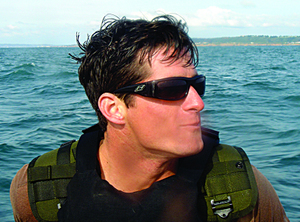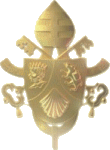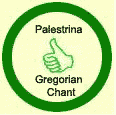The feast days of the church were drilled into me from an early age. But frankly by the time I was in my 20’s I only paid attention to the 4 major events of the Incarnation, Good Friday, Easter Sunday and Penecost. Of course being Irish-American I have to add St. Patricks day naturally (and I mean that in a religious celebration not a bar room one).
In my 30’s the seasons of Lent and Advent came back, especially after having children.
In my 40’s however I started an off and on prayer life with the Liturgy of the Hours. At first I only found infrequent revelance to the daily readings in my life, but the more I applied myself in reading them the more it seemed that funny/quirky coincidences kept coming up, which were too timely to be just that – a considencie.
These were issues of reforming sinful areas in my personal life. But then it seemed that I found my self having read something that day that applied to another person in my life or even a stranger whom I struck up a conversation with & no thought of sharing the Gospel with them. They seemed to open up the subject and the daily reading seemed to fit the bill. Frankly it was rather unsettling. On the one hand it had a sort of direct line to God element to it. The odd thing was it wasn’t something I could call upon when needed. There wasn’t a on/off switch. Any time I tried to use it, it never seemed to be effective.
In my late 40’s I seemed to get to caught up with family and work matters and that part of my prayer life declined. I picked it up again now that I’m starting on my 50’s.
The reason I’m posting this is a lead in to something like one of those type of “quirky coincidences” I referred to earlier.
I was reading about a young Navy Seal who received The Medal of Honor for his action in Iraqi. His parents named their child Michael after St. Michael the Archangel. President Bush noted “On Saint Michael’s Day — September 29, 2006 — Michael Monsoor would make the ultimate sacrifice.” Perhaps Michael’s parents saw the “coincidence” of the date or perhaps the President did.
I guess many or perhaps most would call this a coincidence. I prefer to see the hand of God in it.
A final point of reference for me was out of curiosity I happened to look back at what Pope Benedict said in his Sunday sermon the week that Michael died to save his fellow soldiers. For a Catholic a sermon is used to try, with the best of their ability to apply the message of the sermon they received and incorporate it in their lives for that week.
The sermon is IMO uncanny. The references to human self sacrifice for their fellow man, giving of the supreme sacrifice and then the message after the sermon with reference to the Stella Maris (apostleship of the sea) & the care of seafarers(since he was a Navy SEAL), just floors me. As a Catholic who attended mass, I am assuming that he listened to those words of the Gospel and perhaps the chaplain addressed a similar theme as Pope Benedict XVI did. In any case Michael certainly lived out the Gospel message and honored all of humanity and the call of his Lord and saviour that fateful week.
Dear Brothers and Sisters,
In this Sunday’s Gospel, for the second time Jesus proclaims his passion, death and Resurrection to the disciples (cf. Mk 9: 30-31). The Evangelist Mark highlights the strong contrast between his mindset and that of the Twelve Apostles, who not only do not understand the Teacher’s words and clearly reject the idea that he is doomed to encounter death (cf. Mk 8: 32), but also discuss which of them is to be considered “the greatest” (Mk 9: 34).
Jesus patiently explains his logic to them, the logic of love that makes itself service to the point of the gift of self: “If anyone would be first, he must be last of all and servant of all” (Mk 9: 35).
This is the logic of Christianity, which responds to the truth about man created in the image of God, but at the same time contrasts with human selfishness, a consequence of original sin. Every human person is attracted by love – which ultimately is God himself – but often errs in the concrete ways of loving; thus, an originally positive tendency but one polluted by sin can give rise to evil intentions and actions.
In today’s Liturgy, this is also recalled in the Letter of St James: “Wherever jealousy and selfish ambition exist, there will be disorder and every vile practice. But the wisdom from above is first pure, then peaceable, gentle, open to reason, full of mercy and good fruits, without uncertainty or insincerity”. And the Apostle concludes: “The harvest of righteousness is sown in peace by those who make peace” (Jas 3: 16-18).
These words call to mind the witness of so many Christians who humbly and silently spend their lives serving others for the sake of the Lord Jesus, behaving in practice as servants of love, and hence, “artisans” of peace.
Sometimes, certain people are asked for the supreme testimony of blood, which also happened a few days ago to the Italian Religious, Sr Leonella Sgorbati, who died a victim of violence. This Sister, who served the poor and the lowly in Somalia for many years, died with the words “I forgive” on her lips: this is the most genuine Christian witness, a peaceful sign of contradiction that demonstrates the victory of love over hatred and evil.
There is no doubt that following Christ is difficult, but, as he says, only those who lose their life for his sake and the Gospel’s will save it (cf. Mk 8: 35), giving full meaning to their existence. There is no other way of being his disciples, there is no other way of witnessing to his love and striving for Gospel perfection. May Mary, whom we call upon today as Our Lady of Mercy, open our hearts ever wider to the love of God, a mystery of joy and holiness.
After the Angelus:
Next Thursday is World Maritime Day and I would like to invite all of you to pray for the men and women involved in seafaring, and for their families. I thank the Lord for the work of the Apostleship of the Sea, which for many years has offered human and spiritual support to those who live this difficult and challenging way of life. I welcome particularly the recent initiatives taken by the International Maritime Organization to contribute to the fight against poverty and hunger. May Our Lady, Star of the Sea, look down in love upon seafarers and their families, and upon all those who care for their human and spiritual needs.
Pope Benedict XVI -ANGELUS-September 24, 2006















 Site supports Most Reverend Jose H. Gomez
Site supports Most Reverend Jose H. Gomez
 Bishop Kevin W. Vann
Bishop Kevin W. Vann
You must be logged in to post a comment.